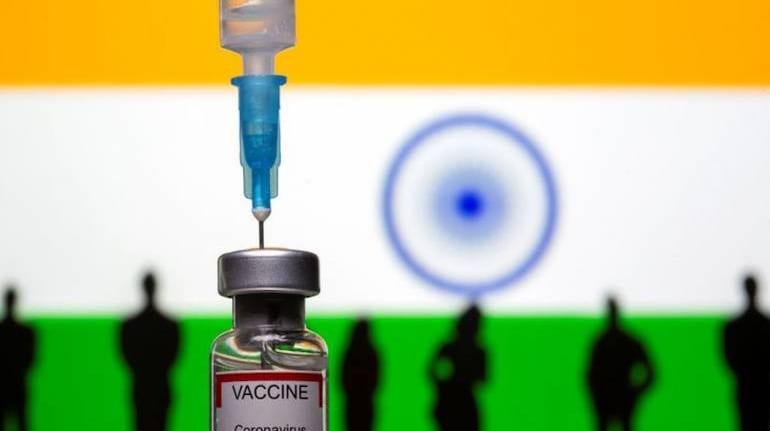



India achieved a major milestone in its vaccination programme against COVID-19 as the cumulative vaccine doses administered in the country surpassed the 200-crore mark on Sunday. According to the health ministry data, 98 per cent of the adult population has received at least one dose while 90 per cent have been fully vaccinated.
The data showed that 82 per cent of adolescents aged 15 to 18 years have also been vaccinated with the first dose since the vaccination for this age group began on January 3 while 68 per cent have got both the first and second dose. Eighty one per cent of those aged 12-14 years have taken the first dose while 56 per cent are fully vaccinated.
According to health ministry officials, 71 per cent of the vaccination has taken place in Covid vaccination centres located in rural and 29 per cent in urban areas. Also, 48.9 per cent of the total doses were administered to women while 51.5 per cent in men. According to the data, 0.02 per cent of total vaccine doses administered were given to Others'. Also, 48.9 per cent of the total doses were administered to women while 51.5 per cent in men.
In Andhra Pradesh, Andaman and Nicobar Islands, Jammu and Kashmir, Himachal Pradesh, Lakshadweep, Chandigarh, Telangana and Goa, 100 per cent of the 12 year plus eligible population is fully vaccinated. The top five states where highest number of doses have been administered are Uttar Pradesh (34,41,93,641), Maharashtra (17,05,59,447), West Bengal (14,40,33,794), Bihar (13,98,52,042) and Madhya Pradesh (12,13,15,911) till 7 am on Sunday. A total of 5,63,67,888 precaution doses have been administered to all eligible population.
The cumulative Covid vaccine doses administered in the country crossed the 100-crore mark on October 21 last year and 150 crore on January 7 this year. The countrywide vaccination drive was rolled out on January 16 last year with healthcare workers getting inoculated in the first phase. Vaccination of frontline workers started from February 2 last year.
The next phase of COVID-19 vaccination commenced on March 1 last year for people over 60 years of age and those aged 45 and above with specified comorbid conditions. Vaccination for all people aged more than 45 years began on April 1 last year. The government then decided to expand the ambit of the vaccination drive by allowing everyone above 18 years to be inoculated against Covid from May 1 last year.
Inoculation of adolescents in the age group of 15-18 years commenced on January 3. India began administering precaution doses of vaccines to healthcare and frontline workers and those aged 60 and above with comorbidities from January 10.
The country began inoculating children aged 12-14 from March 16 and also removed the comorbidity clause making all people aged above 60 eligible for the precaution dose of Covid vaccine. India on April 10 began administering precaution doses of COVID-19 vaccines to all aged above 18 years.
Discover the latest Business News, Sensex, and Nifty updates. Obtain Personal Finance insights, tax queries, and expert opinions on Moneycontrol or download the Moneycontrol App to stay updated!
Find the best of Al News in one place, specially curated for you every weekend.
Stay on top of the latest tech trends and biggest startup news.